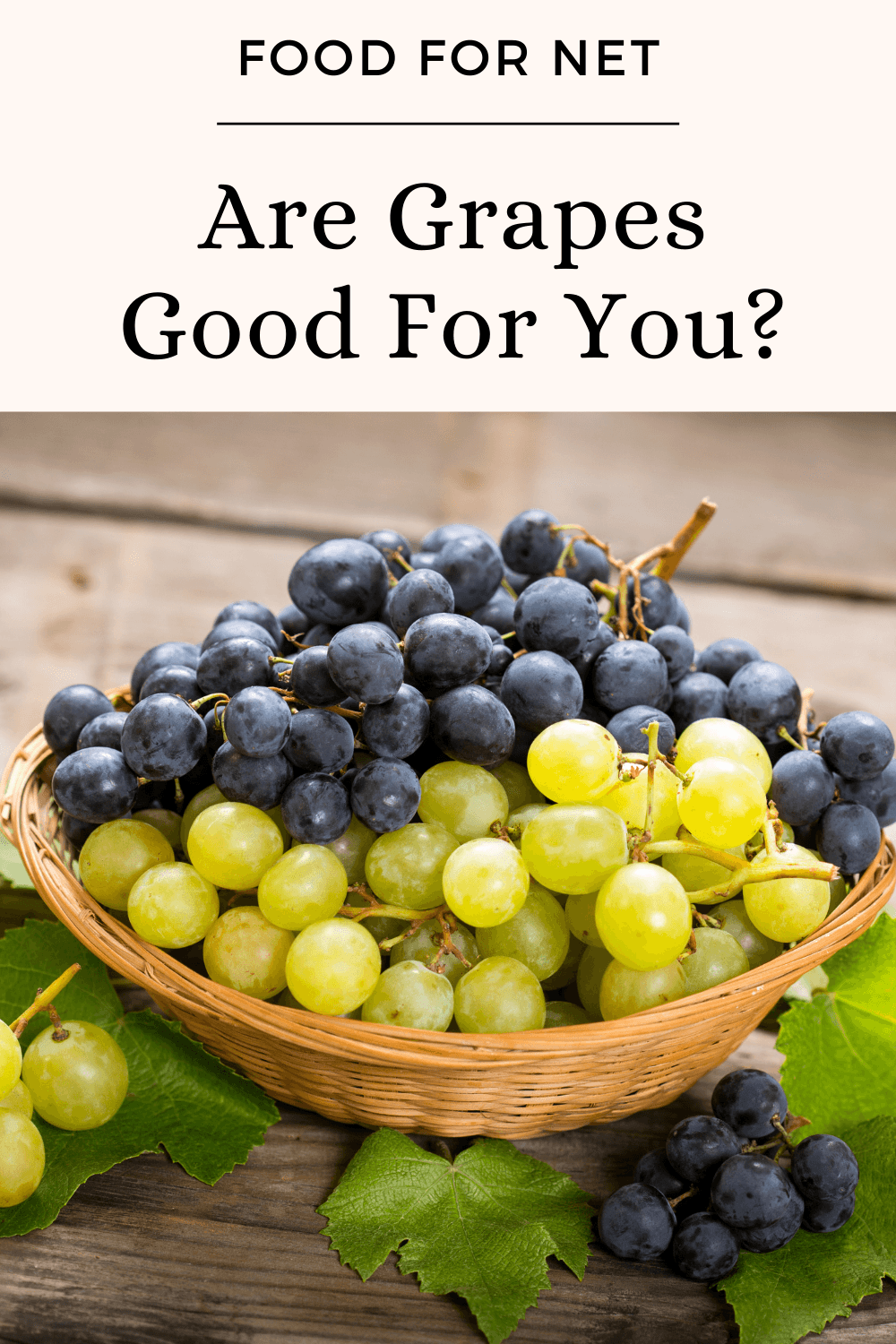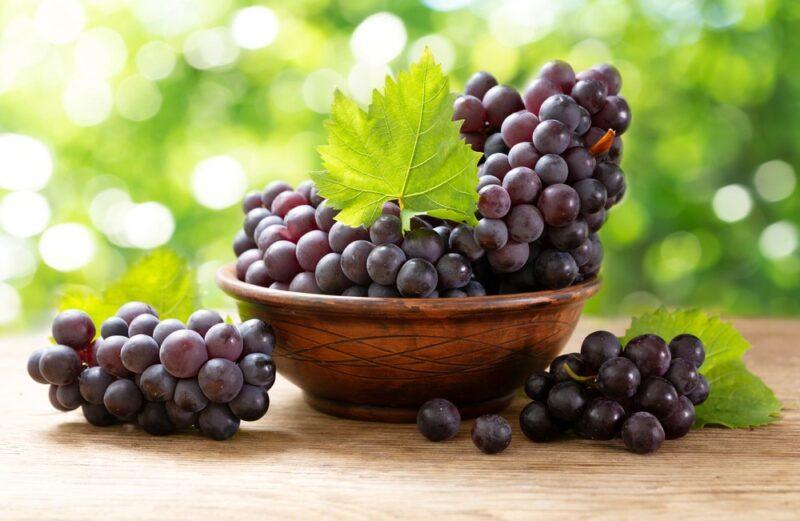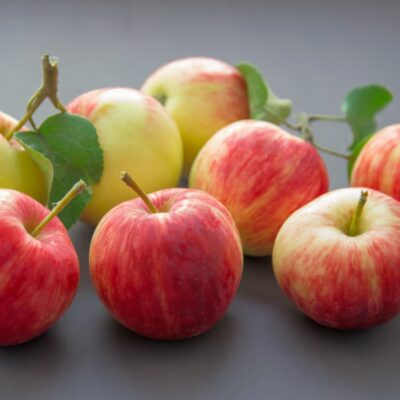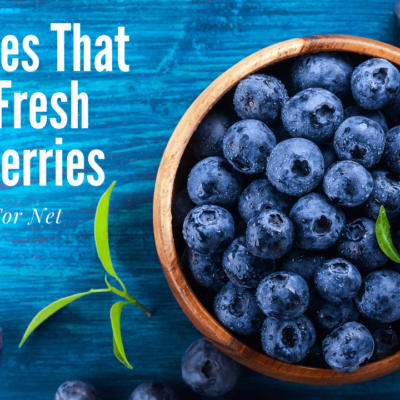
Grapes are incredibly popular, both as a snack in their own right and as an ingredient in plenty of foods and drinks, including grape juice, wine, and grape jelly. In fact, red wine is often seen as being healthy because of the antioxidants it gets from grapes (including the famous resveratrol). Even so, let’s think about this. Are grapes good for you?
After all, the presence of a few healthy compounds isn’t enough to say that a food or drink will provide health benefits. If that was the case, we could say that Coca-Cola is healthy simply because it contains water.
Coca-Cola isn’t good for you though. It’s high in sugar and calories, can easily lead to weight gain, and doesn’t provide any benefits at all.
To answer the question about grapes, we need to do the same thing that we do for any other type of food or drink – look at how the risks and benefits balance out, along with how grapes compare to other foods. So then, let’s get started.
Are Grapes Good For You?
- Benefits Of Grapes
- How Grapes Could Be Harmful
- Should You Eat Fruit?
- Are Red Grapes Better Than Green Grapes?
- Are Grapes Healthier Than Wine?
- What About Grape Products?
- Final Thoughts
Benefits Of Grapes

Their Nutrient Profile
Like most fruit, grapes provide you with a selection of nutrients, including vitamin K, vitamin B6, vitamin C, manganese, and potassium. Such nutrients are always important, as our bodies need every one of them to function effectively.
Regularly missing out on key nutrients can even cause serious side effects and increase the risk of disease.
While you do get more nutrients from vegetables than from most fruit, grapes are still an important way to boost your nutrient intake. If nothing else, it’s incredibly easy to have a handful of grapes as a snack. Having a handful of spinach, on the other hand? Not nearly so enjoyable.
The Fiber Content
Fiber is one of the main reasons to eat plants regularly, with many of the health benefits relating directly or indirectly to the fiber. There are two main types of fiber, which impact health in different ways.
Insoluble fiber, as the name suggests, doesn’t dissolve at all. Instead, it simply absorbs water as it makes its way through your digestive system. Surprising as it might seem, this effect promotes regular bowel movements and reduces the risk of constipation.
Soluble fiber is different. It ends up forming a gel-like mass, which allows digested food to sit in your stomach for longer. That effect isn’t a bad thing, as it decreases carb absorption and reduces blood sugar spikes.
This type of fiber might decrease heart disease risk too, as soluble fiber can lower your cholesterol levels. Other benefits emerge from the way that soluble fiber acts as food for the microbes in our gut, which then promotes the activity of our entire gut microbiome.
Grapes contain both soluble and insoluble fiber, making them excellent for health.
An Excellent Source Of Antioxidants
Grapes are an easy way to boost your antioxidant intake, particularly if you focus on dark skinned grapes. It’s easy to see why too, as antioxidants have been linked to many known benefits, along with plenty of other possible ones.
In particular, antioxidants help to fight excessive oxidation in our bodies. By doing so, these compounds help to protect us against a variety of diseases. These even theories that antioxidant rich diets could help people to live longer, be more youthful, and have better skin.
That’s not all. The antioxidant compounds, of which there are many, have plenty of other effects in your body as well. Lutein and zeaxanthin are examples of this pattern. These compounds are both antioxidants found in grapes, but they can also help to protect your eyes.
Can Help With Constipation

Grapes can be a natural way to fight constipation as well. This effect is partly due to their fiber content, as fiber helps to bulk out your stool and allow it to pass more easily.
The water in grapes helps as well. The laxative-like effects aren’t strong, so you can generally eat grapes as a snack without needing to run to the bathroom. Even so, be cautious about having many grapes at a time (especially if your diet is relatively low in fiber).
They’re A Low FODMAP Fruit
Grapes are considered to be low in FODMAPs, so they shouldn’t aggravate symptoms for anyone with irritable bowel syndrome or a related digestive problem. If you are following a low FODMAP diet, then the recommended serving size is around a cup, which is roughly 30 grapes.
You can choose red or green grapes. They’re both similar for FODMAPs.
It’s important to keep an eye on your portions, though, as even low FODMAP fruits can be an issue if you consume too much. Having just one portion of fruit at a time helps you to avoid serious issues, while still giving you the chance to enjoy the fruit.
May Protect Against Disease
The combination of nutrients, antioxidants, and other plant-based compounds in grapes can all have positive impacts on your health.
For example, grapes can lower heart disease risk due to the action of antioxidants, along with the potassium, which helps with your blood pressure levels. Indeed, the potassium in grapes might be particularly relevant, as it helps to offset some of the problems that come from high sodium intake.
Surprising as it might sound, eating grapes regularly can help to lower your risk of diabetes as well. This effect is strongly linked to the fiber, which helps to decrease the blood sugar effect of the grapes.
Indeed, grapes can even be eaten as part of a diabetic diet, as long as you count the carbs in your meal plan.
Grapes might be powerful in other ways too, like strengthening your immune system, decreasing the risk of Alzheimer’s disease, and treating acne. Such benefits haven’t been heavily researched, so we can’t be confident about them. Still, the potential is there, and these effects are just more reasons to try grapes regularly.
How Grapes Could Be Harmful

Their Sugar And Carb Content
While fruit all contains some sugar and carbs, the amount varies from type to type. Grapes aren’t the greatest choice. Like bananas, grapes are very high in carbs. You end up with close to 26 grams of net carbs in a cup of fresh grapes.
The carb content means that most keto dieters will need to avoid grapes or keep their portion sizes very small.
Even if you can fit some grapes on your low carb diet, should you?
After all, some fruits are much lower in carbs. Oranges, peaches, and watermelons are all much better choices. Berries can be excellent too, as they tend to contain more fiber per serving and less sugar.
May Be Contaminated With Pesticides
Pesticides are often used in fruit growing, helping to ensure a healthy and good-looking crop, while minimizing costs to the grower. Unfortunately, some of those pesticides may remain on the produce even after harvesting.
Pesticide levels are regularly tested and are considered to be safe, but honestly, there’s still much that we don’t know. Long-term exposure to low levels of pesticides could easily cause harm. Finding out for certain is difficult and by the time we do know, it could easily be too late.
Grapes are particularly concerning here, as they regularly make EWG’s Dirty Dozen list. This list focuses on pesticide levels in food, with the ‘dirty dozen’ being the worst 12 offenders. In 2021, grapes were in 6th place on this list, which is a serious problem.
To get around this, it’s important to focus on organic grapes instead. These are grown without pesticides, so they won’t have the same contamination that you find with conventionally grown grapes.
You could also look for locally grown grapes, where you know that pesticides weren’t used. Local farmer’s markets are excellent places. You might even know someone who grows grapes in their garden.
Should You Eat Fruit?
Part of the debate about whether grapes are healthy or not comes back to a more general question – is fruit good for you? While many people eat fruit regularly, some are concerned about the sugar content and the calories.
This isn’t surprising either, as there’s plenty of discussion about the problems of sugar, including how sugar can increase inflammation, may raise your risk of diabetes, and contributes to diabetes.
Those problems are all true but they’re mostly linked to added sugar, not the natural sugar that you find in fruit. Part of the difference is that fruit is much more than just sugar. You’re getting a decent amount of fiber, antioxidants, and nutrients at the same time.
The fiber helps to slow down your body’s digestion of the sugar, so the sugar often won’t cause a spike to your blood sugar (while the sugar in a candy bar certainly will).
Different types of fruit vary in their sugar and fiber content, but most can be easily included in a healthy diet. Indeed, research consistently shows that diets rich in fruits and vegetables tend to promote better health, decreased blood pressure, and a reduced risk of some diseases.
The trick is to eat fruit as it is. You won’t get the same benefits if you start using fruit juice instead, partly because the juice contains very little fiber.
That said, you will still need to pay close attention to your body. While fruit is a healthy choice for most of us, some people do need to be more cautious. This might involve avoiding some types of fruit entirely or keeping a close eye on portion sizes.
Are Red Grapes Better Than Green Grapes?

Red grapes get their color from a pigment molecule called anthocyanin. Anthocyanin is a particularly powerful antioxidant, making red grapes a much more potent choice for antioxidants than green grapes.
That’s not all. Red grapes also contain much more resveratrol than green ones. You’ve heard about resveratrol, right? Red wine hit the headlines for resveratrol and the flavonoid is thought to be responsible for many of the benefits of red wine.
Still, the resveratrol difference might not mean that much – as we still don’t know how powerful the compound is for human health. Many of the resveratrol studies focused on animals and used large amounts of resveratrol, more than you’d ever get from grapes, grape juice, or red wine.
Beyond these the antioxidants and resveratrol though, red grapes and green grapes are much the same, so you can choose whichever type you prefer (or have some of each).
While we’re on the topic, there’s something important to say about antioxidants. While antioxidants are important, they’re much like vitamins in that they’re most helpful when our bodies actually need them. This means that if you’re already getting plenty of antioxidants, more won’t help.
By that logic, if you’re eating an antioxidant rich diet, red grapes aren’t going to give you any more benefits than green ones.
Are Grapes Healthier Than Wine?
This might sound like an obvious question, but it’s one that needs to be discussed. After all, red wine has got plenty of media attention for its potential health benefits, while grapes haven’t seen nearly as much press.
Still, the amount of attention that red wine gets is largely due to media bias. Red grapes have the same powerful antioxidants that you find in red wine. The antioxidant content of grapes might even be higher, as red wine has been through much more processing.
There’s also the alcohol to think about.
While low to moderate alcohol intake might offer some benefits, there’s no denying that alcohol comes with plenty of problems too. It can easily increase your risk of disease, even if you’re not drinking excessive amounts.
In the end, wine has much more potential to cause harm than grapes, while grapes have the same benefits – if not more (after all, grapes have fiber, which you don’t find in wine). That conclusion might be a little disappointing, but it’s hardly surprising. Let’s face it, an alcoholic beverage is never going to be as healthy as fresh fruit. It’s just not.
What About Grape Products?

There are also many other products made from grapes, including grape jam, grape jelly, raisins, sultanas, grape juice, and more. Each product has its own strengths and weaknesses. Grape jelly, for example, may contain extra sugar and additives, making it much less healthy than fresh grapes.
Sultanas and raisins are much less processed and are a concentrated source of the various antioxidants from grapes. They’re a concentrated source of sugar as well and it’s too easy to eat more than you intend to.
While benefits and risks vary depending on the product that you choose, fresh grapes will almost always be the healthiest choice. These have been through the least amount of processing and have all of their nutrients. Grape products can still be delicious and make excellent treats, just don’t expect them to be as nutritionally powerful as fresh grapes.
Final Thoughts
Grapes are a delicious and easy snack, one that offers plenty of fiber and some powerful antioxidants. These antioxidants may have many benefits, helping to reduce your oxidative stress, inflammation, and risk of some diseases.
In fact, you’re getting the same antioxidants found in red wine, but in a much healthier way.
The main problem is the sugar content. Like bananas, grapes are relatively high in sugar, to the point that low carb dieters need to be very careful with their serving sizes. This doesn’t mean that you need to avoid grapes though. It simply brings us back to that classic idea of moderation.
Speaking of moderation, here’s a fun trick. If you want to slow down your grape consumption, try freezing your grapes (individually, not when they’re still in a bunch). Grapes don’t fully freeze, due to their sugar content. Instead, they’re still somewhat soft to bite into and taste a little like candy. Frozen grapes are an ideal snack on a hot day or you can use them as an ingredient in smoothies.
Frequently Asked Questions
Are Grapes Acidic?
Grapes have a low pH, which makes them highly acidic. However, the acidity does vary between grape varieties, with some being less acidic than others.
The acidity means that people with acid reflux may need to stick to small servings of grapes or avoid them entirely.
Are Grapes Good For Weight Loss?
Despite their sugar content, fruit tends to be a good choice for weight loss. After all, you’re getting some fiber, nutrients, and antioxidants. Grapes are also lower in sugar and much less processed than many other snacks.
You can even turn to frozen grapes. These may be better for weight loss, as they take longer to eat and you’re less likely to over-consume them.
How Long Are Grapes Good For?
Grapes are fairly resilient. If you keep them in the crisper drawer of your fridge, they may last you up to three weeks. Interestingly, the grapes will keep longer if you keep them in their original bag and don’t wash them.
You can keep your grapes out of the fridge if you want to, but they will lose their crispness and go bad much faster.
Are Grapes Good For Diabetics?
Grapes are sweet, so they can raise your blood sugar levels. Even so, they can be a decent choice for diabetics.
The trick is to keep your serving sizes small and to eat grapes with other foods. For example, a snack pot of grapes and some cheese cubes will have a lower blood sugar effect than grapes on their own.
How Many Grapes Are In A Serving?
A cup of grapes is a common serving size, which equates to roughly two large handfuls. Some people stick to half a cup instead. This still gives you plenty of grapes to enjoy and means you’re consuming much less sugar.

















 15 Types of Low Carb Breakfast Foods Plus The Reasons Why It’s Beneficial to Us
15 Types of Low Carb Breakfast Foods Plus The Reasons Why It’s Beneficial to Us
Leave a Reply